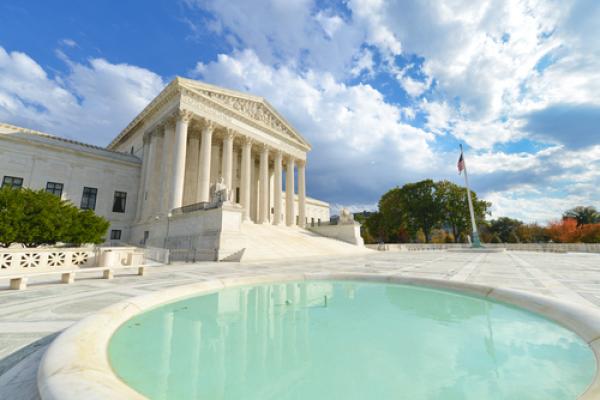The Supreme Court offered a further sign that it favors letting employers with religious objections avoid the Obama administration’s so-called contraception mandate.
Over the vehement objection of its three female justices, the court late Thursday blocked the administration from forcing evangelical Wheaton College to sanction insurance coverage for emergency birth control, even though it would not have had to offer the coverage itself.
In doing so, the court made clear that it’s not done with the religious liberty issue following the court’s June 30 ruling that closely-held, for-profit corporations with objections to certain contraception methods do not have to offer this type of coverage to their employees.
Noting that appeals courts across the country are divided on how religious nonprofits such as charities, hospitals, and colleges should be handled under the regulation, the court said “such division is a traditional ground for certiorari” — a decision by the justices to resolve the issue.
In the meantime, the court said women employees of Wheaton College outside Chicago should be able to get emergency contraception services from private insurers — without requiring the college to sign a form it claims would make it complicit in the transaction.
Ironically, it was that arrangement — in which objecting religious nonprofits would sign over their responsibility to offer contraception coverage to insurers or third-party administrators — that the court cited Monday as a potential solution for profit-making companies such as the craft store chain Hobby Lobby.
Justice Sonia Sotomayor, joined by Justices Ruth Bader Ginsburg and Elena Kagan, dissented from Thursday’s order. She said the accommodation already granted to nonprofits “is the least restrictive means of furthering the government’s compelling interests in public health and women’s well-being.”
“Those who are bound by our decisions usually believe they can take us at our word. Not so today,” Sotomayor said. Declaring insufficient the very accommodation it held out Monday as a possible solution for Hobby Lobby “evinces disregard for even the newest of this court’s precedents and undermines confidence in this institution,” she said.
Under the Affordable Care Act, also known as Obamacare, the Health and Human Services Department issued a regulation requiring employers to offer women’s preventive health insurance coverage, including 20 forms of contraception.
Two types of lawsuits grew out of the contraception mandate. Dozens of nonprofits challenged that arrangement, and dozens of for-profit corporations — mostly closely-held, family-owned companies — sought exemptions as well.
“We continue to believe that a college community that affirms the sanctity of human life from conception to the grave should not be coerced by the government into facilitating the provision of abortion-inducing drugs,” said Wheaton president Philip Ryken.
Following Monday’s 5-4 ruling, those for-profit companies can expect favorable treatment in the lower courts, a process the Supreme Court already began by denying some government petitions and directing courts to reconsider private challenges.
Thursday’s order points toward similarly favorable treatment for other nonprofits whose status is the same as Wheaton’s. Beyond denying contraceptive coverage without co-payments to hundreds of the college’s employees and students, Sotomayor said, the order “will presumably entitle hundreds or thousands of other objectors to the same remedy.”
Richard Wolf writes for USA Today. Via RNS.
Got something to say about what you're reading? We value your feedback!
